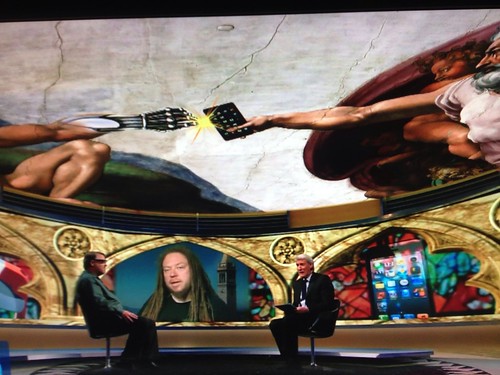Today is Thursday (when I wrote this it was). Tomorrow (today) I go on holiday to France. It has been a pretty crap week (my car got hit by a crane, machine not bird, it is a long dull stressful story) and I can’t wait to get away. Nevermind all that have some auto posted reads. Six lovely posts on a diverse range of topics including the dangers of simplification, praise of play, downsides to corporate accelerators, flat pack futurism, creative perspective and why undercover police officers should not use social media.
The Simple Truth
In More work for Mother, Ruth Schwartz Cowan illustrates how less work and more free time through mechanization has never been the case. In manufacturing, the machine ethic is adopted in order to compress work with the aim of increased productivity, rather than allowing the employees to leave earlier each day. It’s entirely logical that if we adopt the same ethic in domestic spaces, the result remains constant: our expectations just keep pace with the current reality. Simplification does not lead to leisure credit, it allows for more work to be completed in a similar timeframe. Ultimately this exerts a productivity pressure upon humans as they try to keep pace with the machines, a phenomenon that James Gleick characterizes as ‘hurry sickness.’
In praise of play
The pursuit of the pure, free, play is the true driving force behind the games, art, story, and experimental technology worlds I encounter in my daily work. Intelligent people simply will not spend significant chunks of their lives working on difficult problems unless they are motivated, and motivation is the art of remaining excited. What’s more exciting than the universe at your fingertips? Creative play is the excitement of infinite possibility.
Are corporate startup accelerators doing more harm than good?
What I tell people is that accelerators created by corporations or funds have a tendency to create “silos”. They often have one location where participants move into on day one of a program, work for months, and finally emerge on Demo Day with brilliant presentations. They normally bring in a group of professionals as mentors, with a tendency to create “our” group of mentors as opposed to “your” group of mentors. Through their affiliation with, say, a big media company, they claim to bring in exclusive benefits from their respective backer – with the keyword here being “exclusive”.
The death of the cool: fan-fiction futurism
‘The next market shift could come from using our devices as doorways into tomorrow’s Digital World.’ … OK, so it’s a woolly metaphor. Carry on.
‘If you think digital is cool today, you don’t know the meaning of cool’ LAY IT ON ME, DADDY-O; THIS HEPCAT’S HOT TO TROT FOR TEH FUTUREZ LOL (If there is a meaning of cool beyond the one that refers to relative temperature, middle-aged men talking like they think teenagers talk is its antithesis.)
A Short Lesson in Perspective
It takes a certain amount of courage, thinking out loud. And is best done in a safe and nurturing environment. Creative Departments and design studios used to be such places, where you could say and do just about anything creatively speaking, without fear of ridicule or judgement. It has to be this way, or you will just close up like a clamshell. It’s like trying to have sex, with your mum listening outside the bedroom door. Can’t be done. Then some bright spark had the idea of setting everyone up in competition. It became a contest. A race. Winner gets to keep his job.
Activists Identify DC Cop Who Infiltrated Bangladesh Sweatshop Protests
On April 20, MacAuley spotted “Missy” at a protest outside of the World Bank and snapped a photograph of her (above left). Meanwhile, Light and Canavan dug up evidence that Rizzi was a police officer, including a photograph posted on yfrog of Rizzi pointing out a typo on a piece of mail addressed to the “DC Metropolation [sic] Police Department.” Rizzi’s finger partially covers up the address line, but it appears to read “Director, Intelligence Branch.”
Short and sweet, just like my holiday I suspect.





